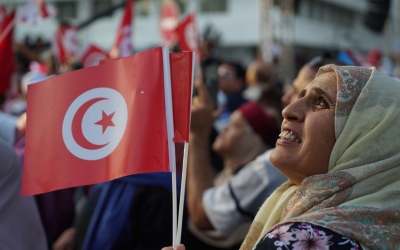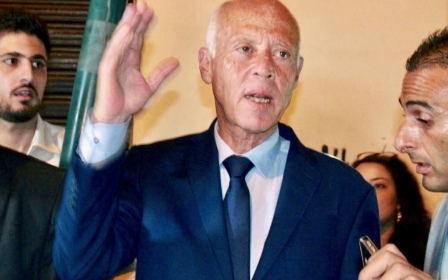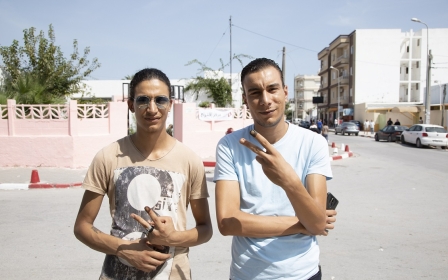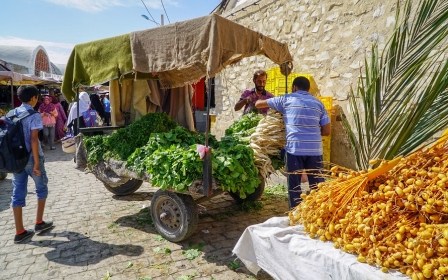Tunisians head to the polls in election overshadowed by populism
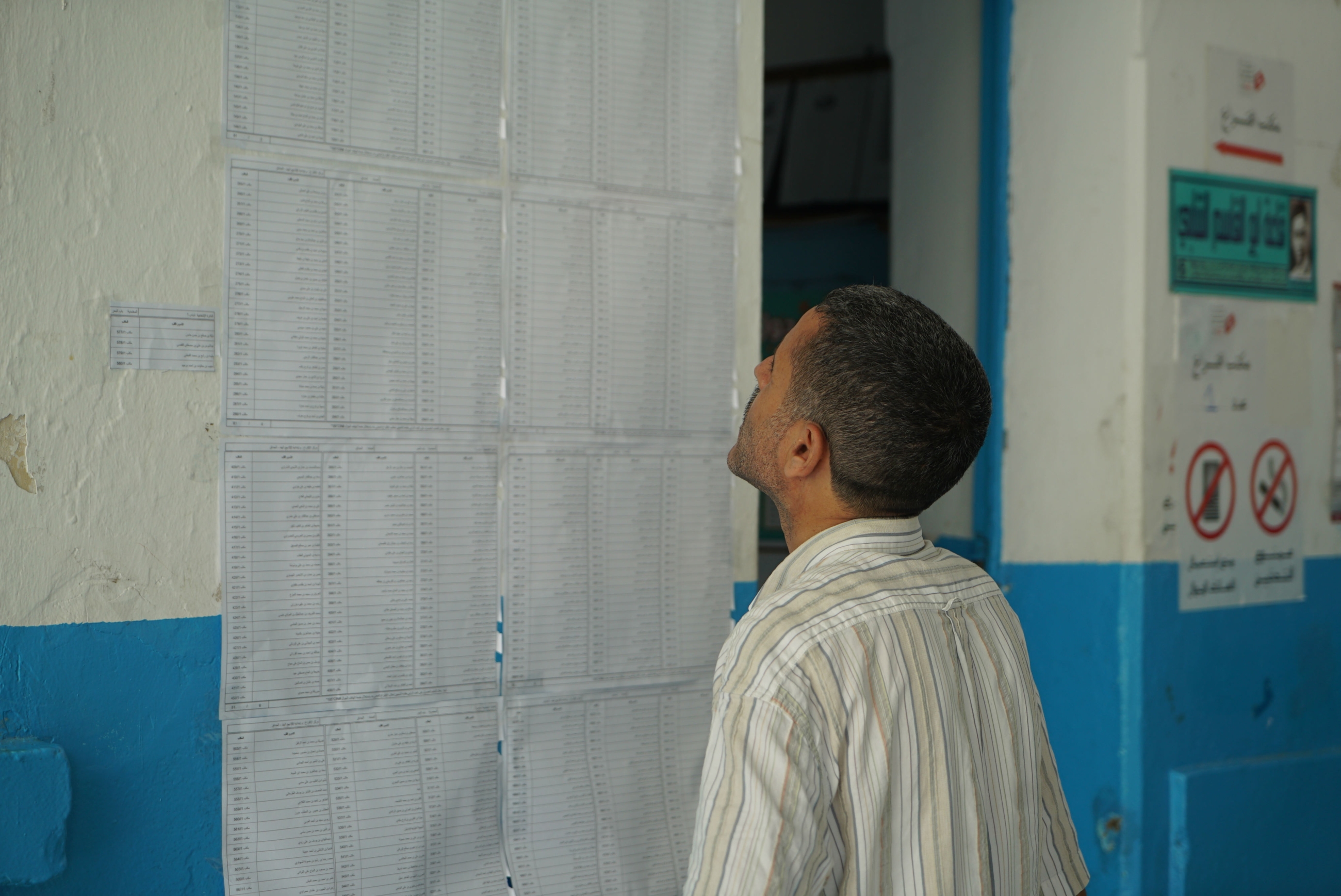
Millions of Tunisians are heading to the polls to elect new members of parliament, in an election that is widely expected to see populist forces and political newcomers gain seats from established parties.
In the capital, Tunis, thousands of voters flocked to schools in the neighbourhoods of Lafayette and La Marsa on Sunday to stake their place in line, well before polling booths opened at 8am.
Standing in a queue outside one polling centre in the centre of Tunis, several voters told Middle East Eye they were exasperated by the rising cost of living and high unemployment rate.
Tunisia's national debt has reached more than 70 percent of economic output, a significant increase compared with the pre-revolution level of 40 percent.
New MEE newsletter: Jerusalem Dispatch
Sign up to get the latest insights and analysis on Israel-Palestine, alongside Turkey Unpacked and other MEE newsletters
'I hope independent politicians contesting this election will win and make sweeping changes, because the situation just keeps getting worse and worse'
- Bochra Ezzeddine, voter
According to World Bank figures, the unemployment rate has also risen from 12 percent before the 2011 Arab Spring uprising to 15 percent now, with one in every three young men in rural areas, and one in five in urban areas, both unemployed and not in education.
"I hope independent politicians contesting this election will win and make sweeping changes, because the situation just keeps getting worse and worse," said Bochra Ezzeddine, who came to the polls with her husband and two-year-old son.
"There are no opportunities for young people, especially university graduates. My younger brothers have master's degrees but haven't found work in three years.
"I'm hoping this vote will lead to a better future for my family."
More than seven million people are eligible to elect their representatives at the popular assembly, roughly two and a half million more than last year's local polls.
With 217 seats up for grabs, the party that secures more than 109 seats in Sunday's single round of voting has the right to appoint a prime minister and form a government.
More than 15,000 candidates are running on more than 1,500 lists, but the high candidate turnout is not expected to be matched by voter engagement.
Turnout for the first round of last month's presidential election stood at 45 percent, down from 63 percent in 2014.
Coalition building
Analysts say it is unlikely any one party will win a majority, with weeks of tense political negotiations expected as the major political parties try to form a coalition government with their rivals.
Ennahda, which describes itself as a party of "Muslim democrats," has years of experience in working with its secular counterparts, and the last five years have seen it engage a politics of consensus with the Nidaa Tounes party.
However, it has said it will seek to govern alone or in partnership with "the forces of the revolution," hinting at an end to five years of consensus rule with the secular establishment.
The party has also said it would back retired law professor Kais Saied against media magnate Nabil Karoui in the second round of the presidential election next week.
Karoui, head of the Qalb Tounes party, has been imprisoned since 23 August on allegations of money laundering and tax evasion. His supporters claim he was jailed on the eve of the election for political reasons as he was leading the polls.
"The only revolutionary force is Ennahdha," Rachid Ghannouchi, the group's co-leader, told his supporters at a campaign rally earlier this week. "Qalb Tounes... represents the old regime."
Analysts have said a strong performance by Karoui's party in the parliamentary elections could boost his chances in the presidential run-off.
"Qalb Tounes may very well benefit from the persecution narrative Karoui's advisers have been putting out there," Sarah Yerkes, a fellow at the Carnegie Endowment for International Peace, told MEE.
"But if Qalb Tounes performs very poorly, that is a bad sign for Karoui’s chances."
Sunday's election represents a big test for Tunisia's established parties after Saied and Karoui’s successes, which were seen as a rejection of governments that have failed to address chronic economic problems.
Imen Ben Mohamed, a former Ennahda MP, said the vote could drastically alter the next parliament, leaving it heavily "fragmented".
"Ennahda don't want to exclude anyone and are open to negotiating with every political party," she told MEE.
"But we are looking for common values such as fighting corruption, good government and social justice."
Middle East Eye delivers independent and unrivalled coverage and analysis of the Middle East, North Africa and beyond. To learn more about republishing this content and the associated fees, please fill out this form. More about MEE can be found here.


